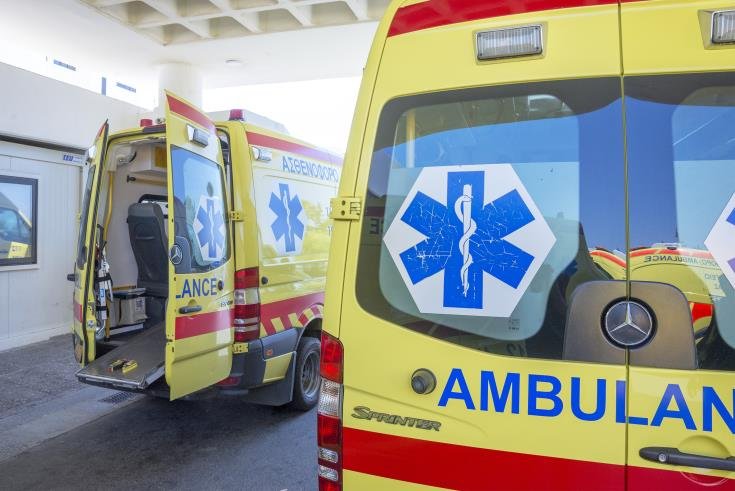Paramedics belonging to trade union Isotita will refuse to work overtime between February 17 and February 23, in protest at what they describe as the “continuous understaffing” of the ambulance service.
The union said understaffing “seriously undermines public safety and threatens the quality of the emergency pre-hospital care services provided”.
“It is time for the state to act responsibly towards paramedics and towards the public who the paramedics serve daily with selflessness and professionalism. We expect immediate actions from the authorities to resolve our fair demands,” it added.
Additionally, it said, there have been “unjustified delays” in recruiting new personnel and in creating a registry for paramedics, adding that the situation is currently “intolerable”.
“We are determined to proceed with any mobilisations required until we are vindicated. We hope for an immediate and substantial response from the authorities, so that we are not led to any further escalation of our measures, with whatever this may entail for the proper functioning of the health system,” it added.
Concerns have been brewing in recent months over the state of operations of ambulance services in Cyprus, with the federation of Cyprus patients’ associations (Osak) having called on the government in the summer to decide on a way forward.
They had suggested the creation of a publicly run “national ambulance authority” which would operate ambulances centrally, with a bill having been submitted to cabinet last summer containing such a provision.
However, the lack of action has caused concern among Osak, with representative Miltos Miltiadous saying it is making the federation “uncomfortable”.
Osak had been tasked with drawing up a study and proposal on the matter, which, Miltiadous said, was submitted to President Nikos Christodoulides in March last year alongside “clear proposals”.
Osak had submitted three options for how a national ambulance could operate, the first of which would entail the creation of a deputy ministry or an “independent crisis service”, which would have as part of its scope the operation of all emergency services.
The second-best option, he said, would be the creation of an “independent ambulance authority”, while the third would be to create a separate department under the health ministry.
He went on to say that Osak had “agreed to the establishment of a transitional period so that the state health services organisation (Okypy) would benefit for two years from the revenue generated by the operation of their own ambulances, given that the finance ministry had raised some concerns.”
Osak’s intervention comes days after Limassol medical centre director Andreas Pantazis had called for private ambulances to be included in Gesy.
In an explosive letter written to Health Minister Michael Damianos, he said the current system, whereby private hospitals which join Gesy are obliged to have their own ambulances but cannot use them for Gesy purposes is “discriminatory” and “endangers lives”.






Click here to change your cookie preferences